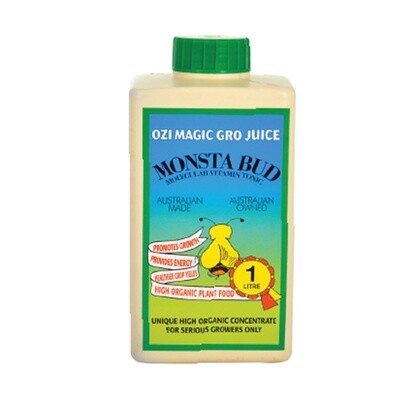*** Order Online Now for Home Delivery or Click & Collect... ***
Using organic nutrients is beneficial for improved soil health and environmental sustainability. Organic options build soil structure, enhance water retention, and support beneficial microbes, while synthetic fertilizers can cause chemical runoff and damage ecosystems. They also provide a slow-release of nutrients, which reduces the risk of burning plants and ensures a more consistent supply of nourishment.
Benefits of using organic nutrients
Improves soil health: Organic nutrients break down to enrich the soil, improving its structure, increasing its water-holding capacity, and fostering a healthy ecosystem of microbes and other beneficial organisms.
Provides a slow release of nutrients: Unlike synthetic fertilizers, organic options release nutrients slowly, providing a steady and consistent food source for plants and minimizing the risk of over-fertilization and "burn" damage.
Enhances water retention: By improving soil structure, organic fertilizers help the soil to hold more water, which is especially beneficial in sandy soils.
Protects the environment: Organic fertilizers are less concentrated and break down naturally, which helps prevent chemical runoff that can contaminate water sources.
Supports higher quality crops: Plants grown with organic nutrients often have higher nutritional profiles and can exhibit improved taste, color, and texture.
Promotes long-term sustainability: Using organic fertilizers is a sustainable practice that helps preserve soil integrity and can reduce a farm's carbon footprint.
Display prices in:AUD






